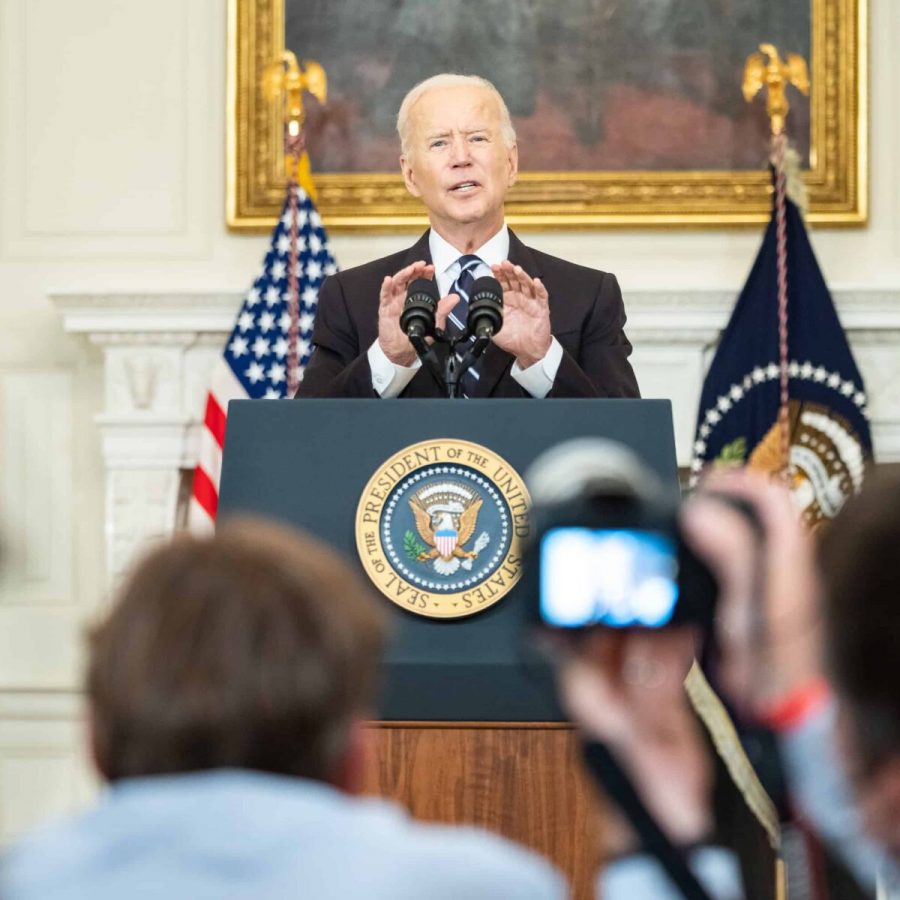Biden Vows to Tackle Inflation
President Biden has vowed to take action to curb inflation as the prices of consumer goods continue to rise across the country.
Speaking in Baltimore last week to tout his recently passed $1.2 trillion Infrastructure Bill, President Biden addressed worrying concerns over inflation, as the prices of consumer goods including food, vehicles, and gas have sharply increased over the past year. Biden has received criticism for not taking bolder economic action to curb inflation, with some economic experts claiming that his large spending bills, such as the recent infrastructure package, could only make matters worse.
On Wednesday, November 10, The Bureau of Labor Statistics, which measures prices paid by American consumers, reported that average consumer prices are 6.2% higher than they were this time last year, according to CBS News. This is the highest rate of inflation in 30 years.
President Biden recognized concerns over inflation while noting the hardship it this has caused many working families.
“Many people remain unsettled about the economy, and we all know why,” he said. They see higher prices … Everything from a gallon of gas to a loaf of bread costs more, and it’s worrisome.”
Biden reassured Americans, however, that the Infrastructure Bill will not contribute to the current trend of inflation.
“According to economic experts, this bill is going to ease inflationary pressures, lowering costs for working families,” he said. “It is to bring inflation down, not up.”
The Willistonian spoke with Michael Nahill, an investor and financial advisor for Merrill Lynch Wealth Management. Nahill is worried about the recent trends of inflation and believes Biden’s spending bills will in fact increase the rate of those trends rather than decrease it.
“When the government goes out to build roads and do other things that they’re spending money on, it creates more shortages and drive prices higher,” Nahill explained. “The government is not really doing the smart thing at the moment, even though we do need infrastructure in our country.”
Nahill also thinks that the devaluing of currency, and rising prices that that have come as a result, could discourage some voters from reelecting the Biden Administration in the next presidential election.
“People are very upset with the current Administration’s handling of the economy,” he said. “Gasoline prices have gone up almost three times what they were under the previous administration, and people are feeling the pinch—when you go to fill your tank up, you’re paying three times as much … than you were a few years ago.”
Unlike Nahill, Mark Zandi, an opinion writer for CNN Business Perspectives, attributes rising gas prices to a choice made by gas companies to produce less gas, and he believes gasoline prices will return to previous levels once gas companies increase production.
“Today, because of the pandemic, oil companies are producing less [gas], causing prices to soar to close to $3.50 a gallon,” Zandi said. “But it won’t take long before the profits and competitive pressures entice the industry to increase output. Oil and gas prices will come back down, and instead of adding to inflation, they will become a drag on it.”
Many economists wonder whether current inflation will end up being transitory or permanent which are two different forms of inflation that have different economic effects.
According to Federal Reserve Chairman Jerome Powell, transitory inflation is inflation that “will not leave behind persistently higher inflation,” while permanent inflation could influence consumer prices for decades to come.
Nahill explained the difference between transitory inflation and permanent inflation, and the economic factors that could cause inflation to be permanent.
“There are two parts to this inflation; there is the shortage of supplies that people are demanding, and that could be somewhat transitory if supply increases or demand declines,” Nahill explained. If the supply increases, then inflation related to supply of goods would be transitory. However, increased labor costs could be permanent, and that would be troublesome.”
Olin Rose-Bardawil is a senior from Northampton, MA who has written for the Willistonian since 2021 and has served as its editor-in-chief since 2023. In...










